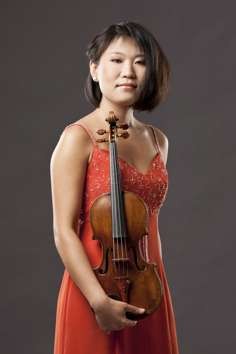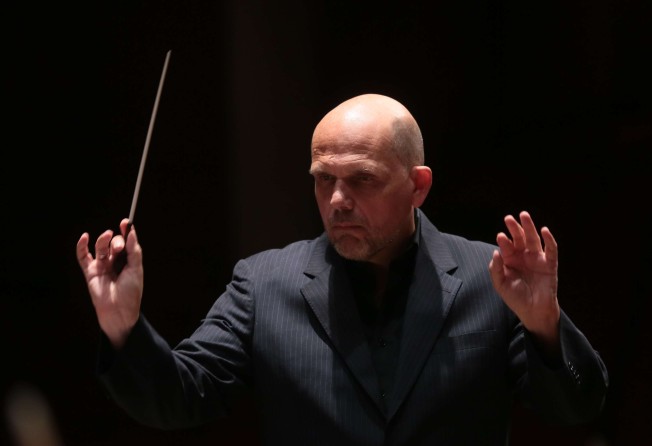
Review: Jaap van Zweden’s Mahler 1st driven and lyrically infectious
HKPhil music director was fully in charge of what can be a demanding work, even if its earthy interludes were glossed over, and orchestra and soloist were in perfect sync in Mozart violin concerto

Mozart and Mahler were cornerstones of the Hong Kong Philharmonic under previous music director Edo de Waart, though he used to say their music was played “for training purposes”.
Mozart needs rhythmic buoyancy, while Mahler requires supreme attention to instrumental colour. Once orchestral musicians can play delicately enough to dance through Mozart’s slow movements, or join together seamlessly in striking combinations, De Waart explained, the ensemble would be able to play anything.
The HKPhil has moved well beyond remedial classes, as was quickly evident in Thursday’s performance of Mahler’s First Symphony under current music director Jaap van Zweden.
As a former concertmaster of the Royal Concertgebouw Orchestra – a champion of Mahler’s music even during the composer’s lifetime – Van Zweden is steeped in its Mahler tradition (one rivalled only by the Vienna Philharmonic and the New York Philharmonic, both of which were conducted by Mahler himself). Van Zweden made the performance very much his own, however.
The Mahler opened with a hushed intensity, and despite a few clumsy attacks when the winds and brass were most exposed, the music’s lyrical sweep was infectious. Mahler’s initial audiences found his musical discourses troubling. Even conductors sometimes get bogged down in Mahler’s arsenal of sonic effects and lose track of the music’s content.

Van Zweden, if anything, erred in the opposite direction. Folk songs and peasant dances periodically disturb Mahler’s symphonic backdrop with earthy immediacy, yet the orchestra barrelled through with minimal disruption. Van Zweden, his destination clearly in mind, continually pushed forward, paying little attention to the sights along the way.
Mozart’s Violin Concerto No. 4 in D, which opened the evening, is from a different time and has a contrasting sensibility.
Though Mozart was also inspired by folk material, those influences rarely stand out in his music – perhaps because, as a travelling soloist himself, he wanted to make sure that the orchestra at hand wouldn’t be confused by foreign folklore.
Soloist Tianwa Yang matched perfectly the HKPhil’s rhythmic clarity and Van Zweden’s conception of the work’s structure.
Although Thursday’s performances enabled the orchestra to demonstrate the contrast between the two Ms, Mahler and Mozart, a 20-minute first half and a second half lasting nearly an hour hardly seemed balanced. Surely there was music by another M – Mendelssohn, Massenet or Mussorgsky – that could have rounded out the programme?